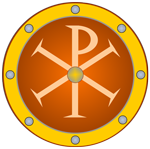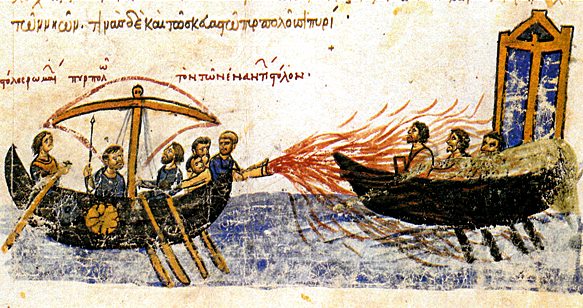
Raid on Constantinople(Raid of the Rus) |
year: 941May 941 |
| A big Rus force that attacked Constantinople was repelled and destroyed | ★ ★ ★ ★ ★ |
|
enemy: Rus & Pechenegs
|
location: Constantinople
|
accuracy:
●●●●●
|
|
battle type: Raid |
war: Byzantine-Rus Wars |
modern country:
Turkey |
| ▼ The Byzantines(emperor: Romanos I Lekapenos) | ▼ The Enemies | |
| Commander: | Emperor Romanos I Lekapenos | Kaghan Igor of Kiev |
| Forces: | 15 ships | 1000 ships, 40,000 men |
| Losses: | The entire fleet was destroyed |
| Background story: |
| In May 941, the Rus and their allies, the Pechenegs, led by Igor of Kiev kaghan of the Rus, disembarked on the northern coast of Asia Minor and swarmed over Bithynia. As in the raid of 860, they seemed to have been well informed that the Imperial capital was defenseless and vulnerable to attack: the Byzantine fleet had been engaged against the Arabs in the Mediterranean, while the bulk of the Imperial army had been stationed along the eastern borders. After ravaging Bithynia, the Rus attacked the capital. |
The Battle: |
 use of Greek Fire in the Skylitzes manuscript Liudprand of Cremona wrote: “The Rus, seeing the flames, jumped overboard, preferring water to fire. Some sank, weighed down by the weight of their breastplates and helmets; others caught fire. Only those men who managed to get their ships to the shore quickly enough survived, because the Greek ships with their much deeper draught could not follow them into the shallows. A number of captured Rus were later publicly beheaded.” The Byzantines managed to dispel the Rus fleet but not to prevent the pagans from pillaging the hinterland of Constantinople, venturing as far south as Nicomedia. In September, John Kourkouas and Bardas Phokas, two leading generals, speedily returned to the capital. The Kievans promptly transferred their operations to Thrace, moving their fleet there. When they were about to retreat, laden with trophies, the Byzantine navy under Theophanes fell upon them and destroyed them. Igor managed to escape. |
Noteworthy: |
| The Khazar Correspondence reveals that the campaign was incited by the Khazars, who wanted to revenge on the Byzantines for the persecutions of the Jews. however, this report is not considered credible. |
Aftermath: |
| Igor attacked again in 944, in a smaller-scale raid, but again the attack was effectively counteracted by the use of the Greek Fire. Despite his failures, Igor achieved a favorable trade agreement with the Byzantines in 945. |
|
|
